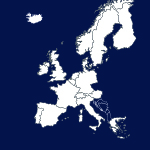European Union Institutions
The World Bank Brussels Office manages day-to-day relations with the European Union (EU) institutions. These include the European Commission (EC), the European External Action Service (EEAS), the Council of the European Union and European Parliament headquartered in Brussels, and the European Investment Bank headquartered in Luxembourg. The Brussels office is mandated to handle bilateral relations with Belgium and Luxembourg as well as NATO, and works to leverage developing country representations, including the Organisation of African, Caribbean and Pacific Countries (AC) states. Different units, including the Europe and Central Asia Vice Presidency, the International Finance Corporation (IFC) and the Global Fund for Disaster Risk Reduction conduct operational work out of Brussels.
The Brussels office also engages with numerous constituencies that gravitate around the EU, including civil society organizations, think tanks, the press corps, the private sector, labor unions, and youth organisations.
The WBG has a deep and effective partnership with the EU institutions focusing both outside and inside Europe. This builds on complementary mandates, comparative advantages, close policy alignment, and shared priorities (i.e. green and resilient recovery, jobs and growth, fragility and conflict, climate, gender, human capital, digital, etc.). The WBG also works inside the EU to support countries promote smart, inclusive and sustainable growth, with a focus on catching-up regions.
Today, EU member states account for just over 23% of total shareholding of IBRD. Our partnership takes shape through:
- Upstream alignment, joint analysis and assessments, knowledge sharing and coordination.
- A strong financial cooperation.
- Coordinated implementation at country and global level.
The European Commission is a key financial partner (ranked 2nd largest to WB TFs and 4th for IFC in FY16-20). The EC/WBG Financial Framework Partnership Agreement (FFPA) signed in July 2020 underpins the financial relationship.
Organization for Economic Co-operation and Development
The Organization for Economic Co-operation and Development (OECD) and the World Bank share common objectives to foster sustainable development, reduce poverty, promote beneficial trade and international investment, and ensure responsible and transparent governance. External and Corporate Relations Europe hosts the World Bank's Paris-based OECD liaison, who facilitates World Bank collaboration with the OECD Development Assistance Committee (DAC).
Based on its member countries’ experiences and its policy dialogue with non-OECD members, the OECD has developed policy knowledge, standards, and guidelines, which can be of great benefit to World Bank clients. Additionally, OECD peer reviews provide useful monitoring of many World Bank donor countries' policies and efforts in the area of development cooperation.
The World Bank has been a permanent observer in the Development Assistance Committee since its foundation. Collaboration in this field has intensified recently, in particular in the context of the Paris Declaration on Aid Effectiveness and the monitoring of scaled-up aid.
A Joint Statement of Priorities for OECD-World Bank Cooperation was signed on May 30, 2000. The 2000 agreement has helped the OECD and the World Bank to share institutional and policy knowledge, to improve mutual insight into each other’s work and experience.
The Joint Statement was updated on January 28, 2006 to note that the cooperation between the World Bank and the OECD has matured and become well established in a number of areas, including trade, corporate governance, debt management, pensions, taxation, and in the field of development assistance.

